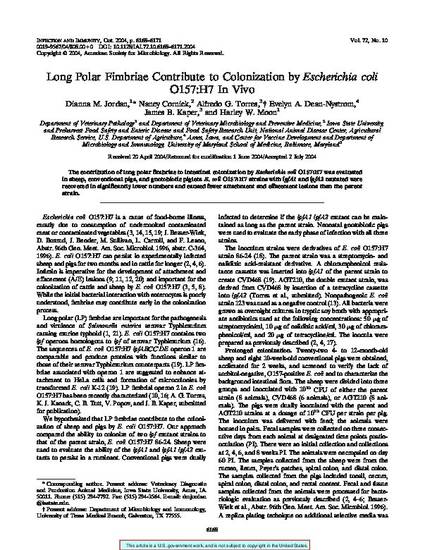
Article
Long Polar Fimbriae Contribute to Colonization by Escherichia coli O157:H7 In Vivo
United States Department of Agriculture-Agricultural Research Service / University of Nebraska-Lincoln: Faculty Publications
Date of this Version
10-1-2004
Disciplines
Citation
INFECTION AND IMMUNITY, 72(10): Oct. 2004, p. 6168–6171
Abstract
The contribution of long polar fimbriae to intestinal colonization by Escherichia coli O157:H7 was evaluated in sheep, conventional pigs, and gnotobiotic piglets. E. coli O157:H7 strains with lpfA1 and lpfA2 mutated were recovered in significantly lower numbers and caused fewer attachment and effacement lesions than the parent strain.
Citation Information
Dianna M. Jordan, Nancy Cornick, Alfredo G. Torres, Evelyn A. Dean-Nystrom, et al.. "Long Polar Fimbriae Contribute to Colonization by Escherichia coli O157:H7 In Vivo" (2004) Available at: http://works.bepress.com/nancy-cornick/1/
